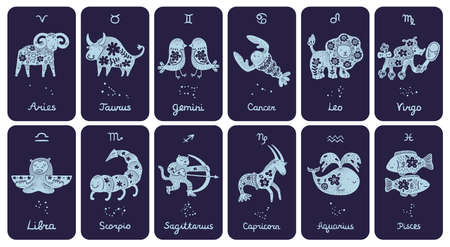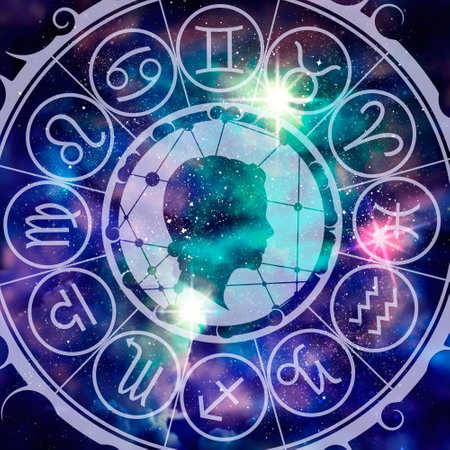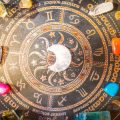Introduction: Lunar Eclipses in British Cultural Tradition
Throughout the annals of British history, lunar eclipses have captivated the collective imagination, weaving a thread between the celestial and the terrestrial. From ancient druidic ceremonies to contemporary gatherings on windswept moors, these rare astronomical events have held a profound place in the nation’s cultural tapestry. Traditionally, a lunar eclipse was regarded with a mixture of awe and apprehension—an omen that portended change or upheaval. Folkloric accounts from rural England recount tales of villagers gathering beneath clouded night skies, interpreting the blood-red moon as a harbinger of fate, while poets and philosophers mused upon its symbolic resonance. In modern Britain, though scientific understanding prevails, the allure of the lunar eclipse endures; people still pause their routines to witness these spectacles, often reflecting on their personal significance. This enduring fascination underscores not only our innate curiosity about the cosmos but also reveals deeper connections between celestial phenomena and emotional experience within British society. As we explore both astrological and psychological perspectives, it becomes clear that lunar eclipses remain more than mere astronomical curiosities—they are moments ripe for introspection, tradition, and communal wonder.
2. Astrological Interpretations of Lunar Eclipses
The British astrological tradition has long woven lunar eclipses into its narrative tapestry, viewing these celestial events as potent symbols of transformation and emotional flux. In astrology, a lunar eclipse occurs when the Earth passes between the Sun and the Moon, casting a shadow that temporarily obscures the Moon’s light. This phenomenon is thought to represent a metaphorical veiling or unveiling within one’s inner life, often coinciding with moments of heightened sensitivity and introspection.
Within the UK’s vibrant astrological community, lunar eclipses are frequently associated with endings, revelations, and emotional catharsis. Classic British interpretations emphasise the role of eclipses in surfacing buried feelings and prompting individuals to confront longstanding patterns. For many, these periods mark turning points that demand both courage and acceptance, reflective of Britain’s cultural value placed on stoicism and self-examination.
Common British Astrological Narratives
| Lunar Eclipse Placement | Astrological Interpretation | Emotional Impact (as per British sources) |
|---|---|---|
| Eclipse in Cancer | Focus on home, family, ancestral roots | Heightened nostalgia, security-seeking behaviour |
| Eclipse in Capricorn | Concerns around career, status, authority | Feelings of pressure, reevaluation of ambitions |
| Eclipse in Leo/Aquarius Axis | Tension between individuality and community | Need for recognition vs. sense of belonging |
Influence on Mood and Emotional States
The prevailing astrological wisdom in Britain suggests that lunar eclipses can precipitate mood swings, vivid dreams, and a temporary intensification of emotional states. Astrologers often advise clients to engage in grounding activities—such as walking in local parks or practising mindfulness—to navigate these tides effectively. While some view this influence as mystical, others appreciate it as a poetic framework for understanding life’s inevitable ebbs and flows.
Cultural Reflections
It is noteworthy that British interpretations frequently blend ancient folklore with modern psychological insight. The lunar eclipse serves as both omen and opportunity—a chance to pause, reflect, and realign one’s emotional compass in the face of cosmic drama. Whether regarded with scepticism or reverence, the astrological perspective invites Britons to acknowledge their emotional landscapes during these rare nocturnal spectacles.

3. Psychological Effects of Astronomical Phenomena
While the mystical allure of lunar eclipses has captivated human imagination for centuries, modern scientific inquiry seeks to elucidate whether these observable cosmic events exert tangible effects on psychological wellbeing. British mental health discourse frequently references the notion that environmental and astronomical factors can influence mood, behaviour, and collective sentiment. Several studies have explored correlations between lunar phases and variations in sleep patterns, emotional states, and even hospital admissions, though findings often remain inconclusive or contested within academic circles.
Notably, research conducted at prominent UK institutions such as the University of Oxford and King’s College London has examined how disruptions in circadian rhythms—potentially triggered by changes in nocturnal light during a lunar eclipse—might impact sleep quality and emotional regulation. Although most scholars agree that there is no direct causal link between lunar eclipses and acute psychological disturbances, subtle shifts in sleep architecture or perceived atmospheric changes can indirectly affect mood for some individuals. Moreover, the British weather’s notorious unpredictability may further amplify or obscure such effects, making it challenging to isolate the eclipse’s unique contribution to observed phenomena.
In the context of public mental health discussions, organisations like Mind and the Mental Health Foundation have occasionally acknowledged anecdotal reports of heightened anxiety or introspection surrounding significant celestial events. These responses are often interpreted through the lens of expectancy and collective attention rather than intrinsic astronomical influence. The anticipation generated by media coverage or communal gatherings to witness an eclipse may foster shared emotional experiences—ranging from awe to unease—which are then retrospectively associated with psychological impact. Therefore, while scientific perspectives generally downplay deterministic effects of lunar eclipses on mental health, they do not entirely dismiss the nuanced interplay between cosmic occurrences and the British psyche’s receptivity to natural spectacle.
4. Cultural Reflections and Emotional Resonance
The emotional impact of lunar eclipses within the United Kingdom is deeply woven into the fabric of its literature, folklore, and local customs. Through an examination of both historic and contemporary sources, it becomes evident that these celestial events have long evoked a distinct emotional tenor, ranging from awe and reverence to anxiety and transformation.
Historic Literary Depictions
British literary traditions have often used lunar eclipses as metaphors for change, uncertainty, or foreboding. Shakespeare’s plays, for instance, reference eclipses as harbingers of turmoil or unrest, reflecting broader Elizabethan anxieties regarding cosmic disruptions. Similarly, Romantic poets like Wordsworth and Coleridge imbued lunar phenomena with themes of melancholy or introspection, suggesting a perceived connection between the movements of the heavens and the emotional states of individuals.
Folklore and Local Customs
In the realm of British folklore, lunar eclipses were frequently interpreted through a lens of superstition and communal ritual. Across England, Scotland, Wales, and Northern Ireland, various customs developed in response to these events. Some communities viewed a blood moon as an omen, prompting collective prayers or symbolic gestures to ward off misfortune. In rural areas, bonfires or bells might be employed to “chase away” the shadow from the moon.
| Region | Historic Custom | Emotional Tone |
|---|---|---|
| England (Midlands) | Bells rung during eclipse | Anxiety & appeasement |
| Scotland (Highlands) | Circular dances around fires | Cohesion & protection |
| Wales | Recitation of charms or prayers | Awe & spiritual safeguarding |
| Northern Ireland | Telling tales of omens | Trepidation & storytelling tradition |
Contemporary Views and Media Representation
In modern Britain, while overt superstitions have largely receded, media coverage and public gatherings during lunar eclipses still evoke collective emotions. Contemporary accounts reveal a blend of scientific curiosity and poetic fascination; many Britons gather at parks or historical sites for eclipse viewings, transforming the experience into a shared event that fosters community spirit and wonderment.
The Persistence of Emotional Resonance
The enduring presence of lunar eclipses in British cultural consciousness is not merely an echo of past beliefs but a testament to the continuing power these events hold over the national psyche. Whether through the lens of history or in present-day gatherings beneath shadowed skies, the interplay between astronomical phenomena and emotional health remains vivid—shaped by centuries-old traditions yet ever-adapting to contemporary sensibilities.
5. Bridging Astrological and Psychological Insights
Within the British context, the intersection of astrological beliefs and psychological theories offers a fascinating lens through which to examine emotional health during lunar eclipses. While astrology has deep historical roots in Britain, woven into folklore and traditional lore, its modern resurgence often intertwines with contemporary psychological discourse. On one hand, astrologers assert that lunar eclipses amplify emotional energies, awaken subconscious patterns, and catalyse periods of reflection or transformation—claims that many Britons find comfort or meaning in, especially during uncertain times.
Areas of Overlap
Astrological perspectives frequently align with psychological theories in recognising the significance of symbols and archetypes. For example, both traditions acknowledge the moon as a metaphor for the inner self, intuition, and emotional cycles. Furthermore, in Britain’s increasingly pluralistic society, individuals may turn to both astrology and psychology to contextualise feelings of anxiety or unrest triggered by celestial events such as lunar eclipses. This convergence is evident in therapeutic settings where mindfulness practices—sometimes inspired by lunar phases—are employed alongside cognitive behavioural techniques to foster emotional resilience.
Divergence and Critical Evaluation
Despite these parallels, clear divergences persist. Psychology, grounded in empirical methodology, seeks testable explanations for mood fluctuations or sleep disturbances reported during eclipses. By contrast, astrology remains primarily interpretative, drawing on symbolic language rather than scientific evidence. In British academic circles, this divergence often fuels scepticism towards astrological claims; however, public interest endures due to cultural traditions and the enduring allure of cosmic symbolism.
Conclusion: A Pluralistic Approach
Ultimately, within the UK’s nuanced landscape, many individuals adopt a pluralistic approach—drawing from both astrological narratives and psychological frameworks to construct personal meaning. Whether viewed through a scientific lens or as part of Britain’s rich cultural tapestry, the interplay between these perspectives continues to shape collective understandings of how lunar eclipses impact emotional health.
6. Practical Guidance for Emotional Resilience during Lunar Eclipses
Navigating Eclipse Nights: Blending Astrological Wisdom and Psychological Insight
Lunar eclipses have, throughout British history, been sources of both fascination and unease. While ancient astrologers regarded them as pivotal cosmic events, modern psychology recognises their potential to stir emotional waters. In everyday life across the UK, fostering emotional resilience on eclipse nights can be achieved by drawing upon both astrological traditions and evidence-based psychological practices.
Astrological Recommendations: Honouring Tradition
According to astrological lore, lunar eclipses are moments of heightened sensitivity and transformation. Many British astrology enthusiasts suggest creating a calming ritual—perhaps lighting a candle or enjoying a cup of chamomile tea—to ground oneself. Journalling one’s thoughts or intentions during this celestial event is often encouraged, echoing the tradition of reflection so deeply woven into Britain’s cultural fabric. Refraining from major decisions on eclipse nights is also recommended, allowing emotional turbulence to settle before action is taken.
Psychological Approaches: Evidence-Based Strategies
Contemporary psychological research underscores the value of mindfulness and self-compassion in managing heightened emotions. On eclipse nights, simple techniques such as mindful breathing or progressive muscle relaxation can be particularly effective. The British emphasis on stoicism need not mean emotional suppression; rather, acknowledging feelings and expressing them in safe environments—such as confiding in a trusted friend over a cup of tea—can foster greater resilience.
Integrating Rituals into Everyday British Life
For many across the UK, evening routines hold significance: a warm bath, a favourite book, or listening to BBC Radio 4 can provide comfort and continuity amid celestial change. Combining these familiar comforts with astrological or psychological practices can create personalised rituals that nurture emotional wellbeing during lunar eclipses.
Community and Connection
Finally, it is worth remembering that collective experiences—be they local astronomy club gatherings or family moon-watching in the garden—strengthen social bonds. Shared observation of an eclipse invites conversation about emotions and wonderment alike, enhancing communal resilience within the unique tapestry of British society.
7. Conclusion: Lunar Eclipses and Collective Emotional Health
Drawing upon centuries of observation, the British relationship with lunar eclipses is steeped in both scientific curiosity and a persistent fascination with celestial influence. From the stone circles of Avebury to the bustling streets of modern London, the moon’s shadow has cast more than just a fleeting darkness; it has invited contemplation, community gatherings, and personal reflection. Ancient Britons interpreted eclipses as portents or moments of cosmic significance, a sentiment echoed subtly in today’s media coverage and public discourse. While astrology continues to ascribe emotional turning points and collective awakenings to these rare lunar events, contemporary psychology offers a complementary perspective—highlighting the value of shared experiences and the heightened self-awareness that such astronomical phenomena can inspire.
In the context of present-day UK society, where discussions about mental health are increasingly foregrounded, lunar eclipses serve as natural markers for communal introspection and emotional reset. Whether attributed to astrological alignments or psychological triggers rooted in cultural tradition, the impact on mood and wellbeing remains tangible for many. The blending of ancient wisdom with modern analytical frameworks enables a richer understanding of how environmental rhythms may interact with our inner worlds. Ultimately, the continued relevance of lunar eclipses lies not merely in their astronomical rarity but in their enduring capacity to unite individuals across generations in collective wonderment, fostering resilience, reflection, and emotional connection throughout the British Isles.


